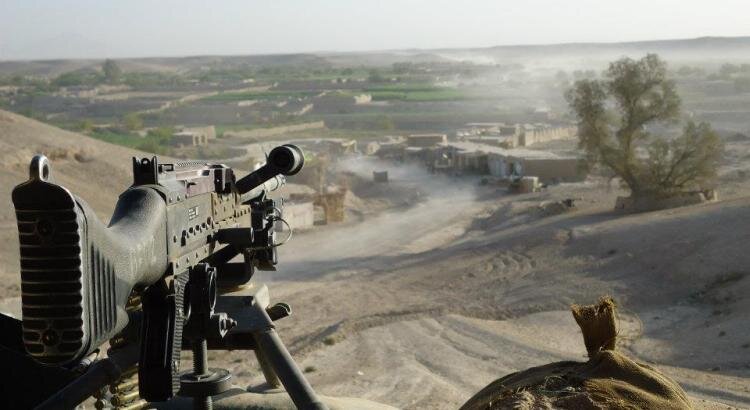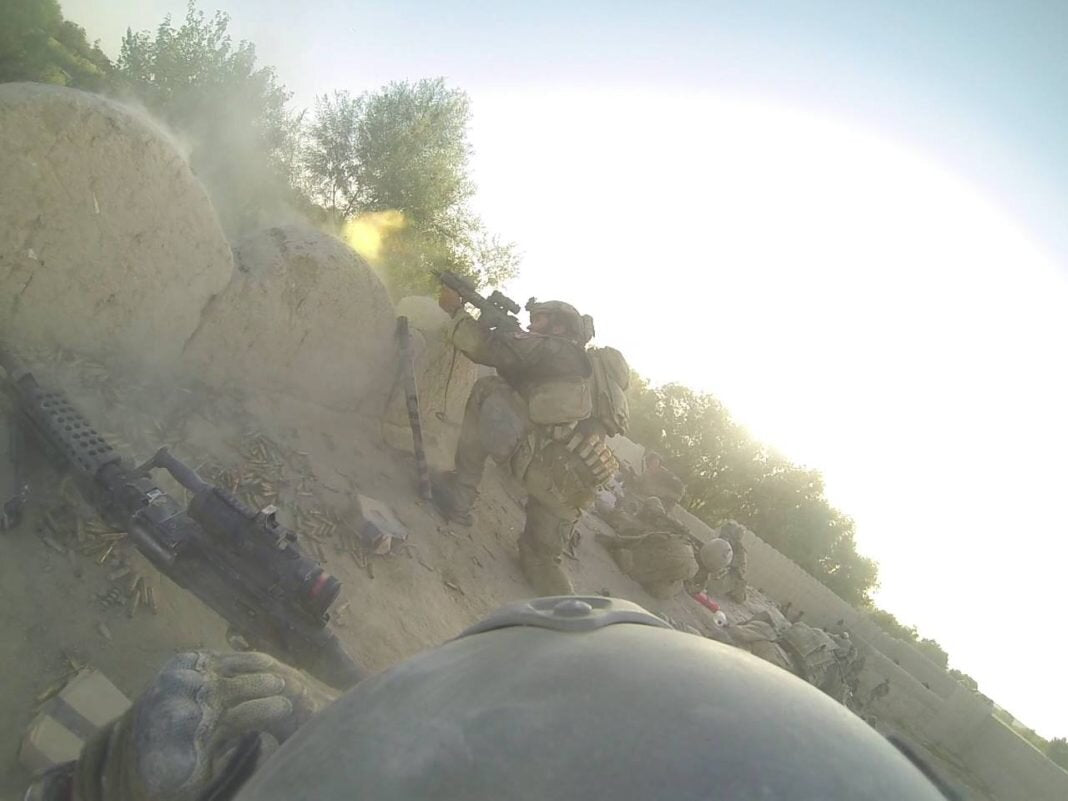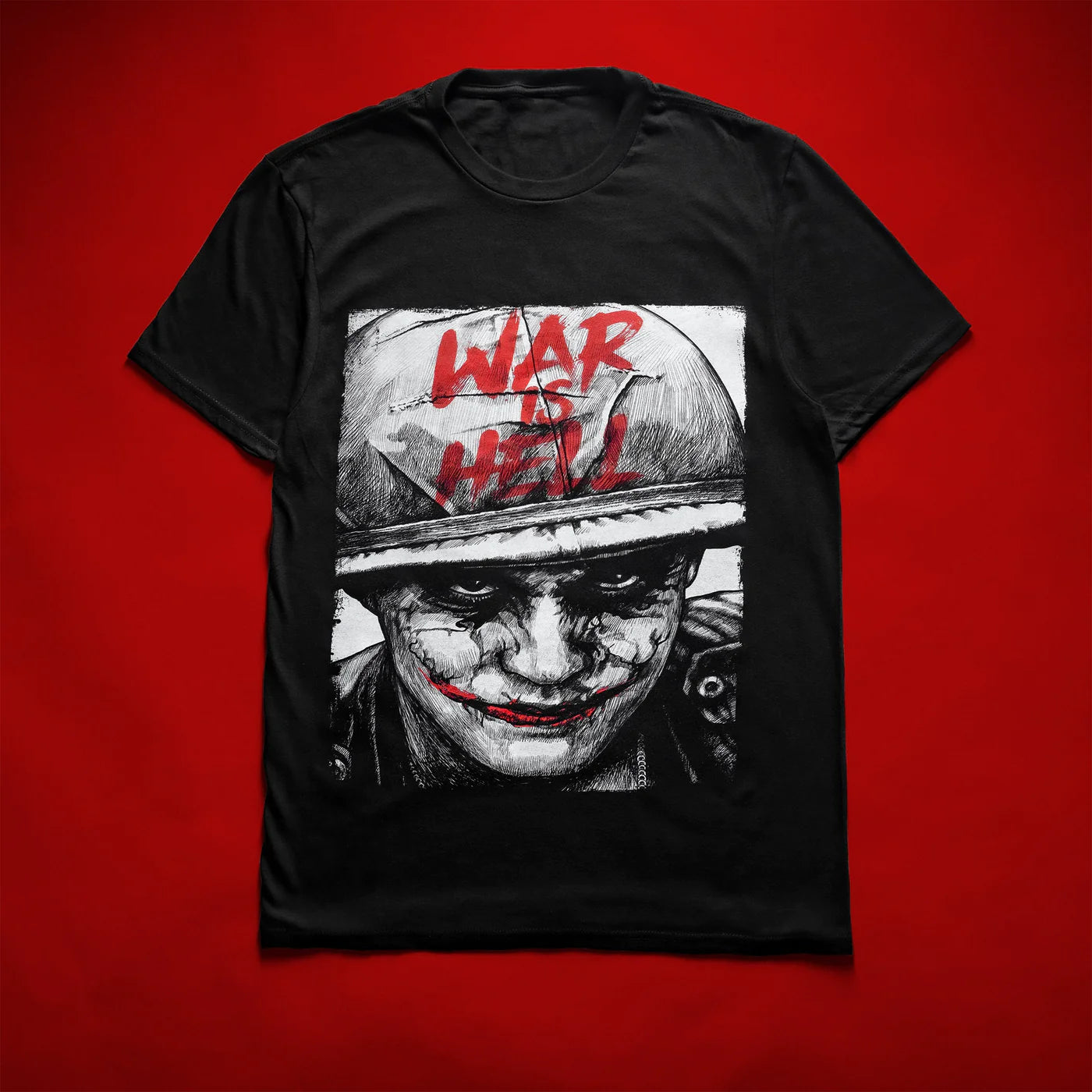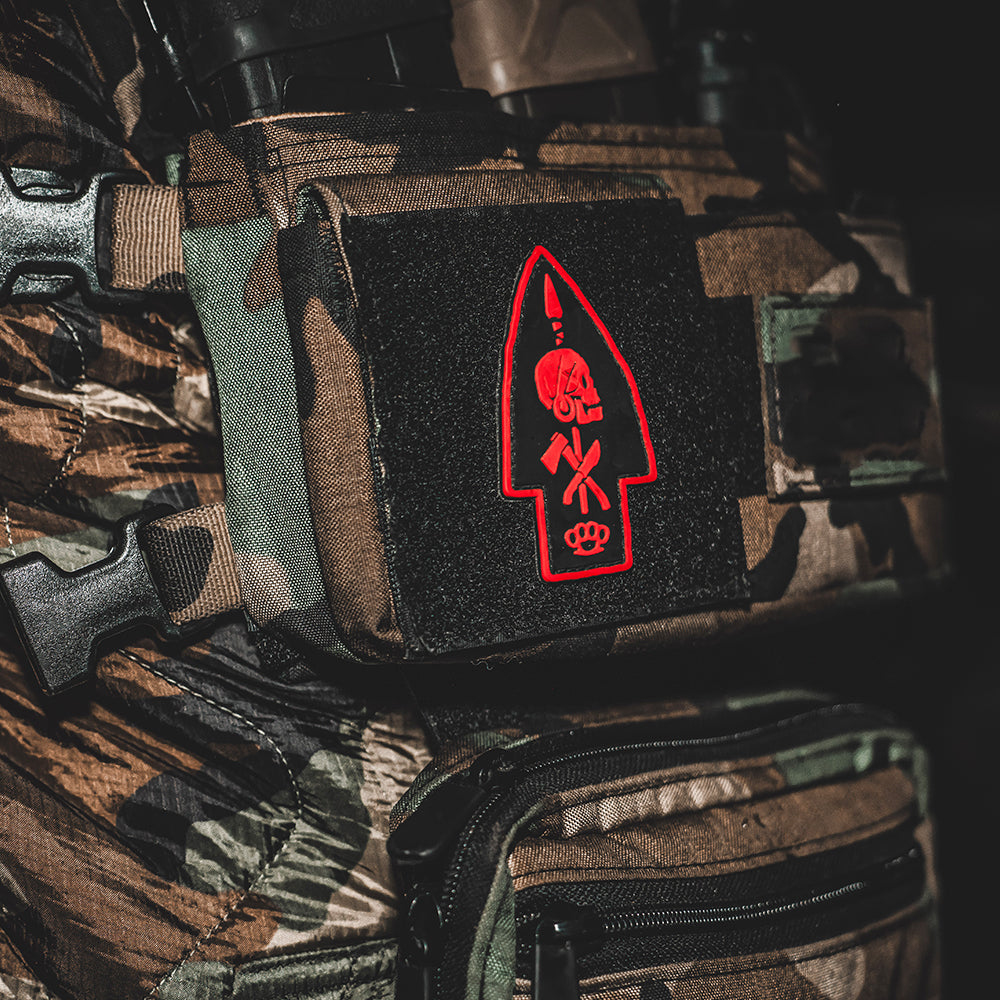
RONIN: The Masterless Warrior of Generation Y
ro·nin
ˈrōnən/noun-historical1. A masterless samurai warrior class of the late Muromachi (1138–1573) and Tokugawa (1603–1867) periods, known for often being vagrant and disruptive and sometimes actively rebellious.-Brittanica I recently left the military after twelve years. People frequently look at me like I just told them I dropped my kid off at Neverland Ranch for the weekend or set fire to a winning Powerball ticket after I disclose that information. The concept of foregoing a federal retirement more than halfway through the game is lost on many. Especially after leaving the special operations community, where the amount of time and effort required to achieve and sustain a successful career are nearly immeasurable, the puzzled reactions I get from people are understandably justified. I’m not alone. I have friends who initiated cutaway procedures after sixteen years. The current exodus of careerists at the eight-to-twelve year mark is staggering. It begs a few questions, to say the least. Why is this happening? What would provoke this emigration of seasoned operators, who have put themselves through hell to get where they are? And what is becoming of this subculture of warriors? The transition is turbulent, to say the least. If I’m conservative with my self-analysis, I’d tell you that it left me struggling to find relevance in the workforce, put a significant strain on my marriage, and catapulted me into the throes of a full-blown identity crisis. If I’m a bit more honest with the same analysis, I’d tell you that it nearly destroyed me. When I can sleep, my dreams are laden with visions of failing, absent of direction or control, losing my family. When I’m awake, I find myself feigning rapport with people I have little in common with, who are so far removed from the world I function in that I struggle to engage them in basic dialogue. This used to be effortless. I miss my brothers. Who am I? Often lately, I find myself revisiting the list of reasons I chose to get out, in what I suppose is an attempt to reinforce that decision, as I become increasingly aware of the vacuum it’s left in my world. Obviously I miss it. Who doesn’t? This sentiment becomes even more acute when you realize that nobody really gives a shit how much of a pipe-hitting-napalm-pissing-one-man-national-asset you were while you were in. Oh, you were special forces? That’s super. Back of the line asshole. And to be honest, why should they care? I mean, it’s not like anyone put a gun to my head and said, “You’re going to war, kiddo.” I made that call. The American military is, to date, still an all-volunteer force. We all made our own decision to join, as individuals, and we knew the stakes. And we knew the stakes getting out too, or at least we should have. We’re masters of a specialty that fits into a very narrow niche in terms of economic relevance. Don’t get me wrong, a SOF background can be - and should be - extremely marketable. But the burden to advertise ourselves lies on us. That goes for a multitude of various military backgrounds. Knowing your self-worth and knowing how to present it are critical elements for transitioning veterans. Too often I’ve seen former teammates, friends, guys I would take a bullet for, leave the military and fail to comprehend this dynamic, and start circling the drain. I know guys, with solid reputations by the highest of standards, who made the transition and strayed down the wrong path, lost their way, only to end up eking out an existence on the brink of self-destruction. It’s heartbreaking. Why is it happening? What are the determining factors in achieving success after life as a professional warrior, or suffering failure? If we’re honest as a society, I think it’s sufficient to say that the data hasn’t even been compiled and processed yet to be able to efficiently analyze and understand how over a decade of warfare in two theaters has psychologically affected an entire generation of Americans. Suicide rates, unemployment, and post-traumatic stress diagnoses for veterans are all alarmingly high. In the history of American warfare, we’ve never experienced a time in which an all-volunteer force was responsible for enduring twelve-plus years of sustained combat, in multiple theaters, for six, seven, ten deployments. Back to back. I know people, mentors of mine, with more than that. If you joined the military after 2001, this is your life. Back-to-back-to-back deployments. It’s all you know. Dwell time? You mean a pre-deployment workup that’s more taxing than the deployment itself? Sure. Need a break? Here’s orders to the “schoolhouse”, so you can “take a knee” for a couple years. Right. Anyone reading this who’s currently filling a schoolhouse billet is masochistically chuckling to themselves right now, I guarantee it. It’s no wonder guys are popping smoke. “Operation Enduring Freedom”. It’s poetic. Another influencing factor is, ironically, the upcoming paradigm shift away from the “global war on terrorism”. While at first glance, this looks likes a fresh start for combat-weary western militaries, it is in fact a consideration when observing the reasons careerists choose to transition. It’s no secret that policymakers in the higher echelons of the American military, specifically the Army and Marine Corps, are currently engaged in a fervent process of trying to rapidly overhaul the collective posture of the operating forces to conform to a more garrison environment. This phenomenon is all over the media at the moment. It’s been written about in various platforms, in several capacities. New policy regulations are being creating round-the-clock, in the interest of maintaining “good order and discipline”. Any outside-the-box, “cowboy” mentality is swiftly shunned, and generally made an example out of punitively. It’s as if the powers that be are trying to contain some simmering, seething monster, sending a message that catastrophe is inevitable unless we take drastic measures to prevent it. Way to insult the entire generation that just finished fighting twelve years of war for you. Again, the exodus is not surprising. Couple this with factors like: Capitol Hill constantly dangling retirement benefits over our heads and threatening reform (benefits which, in all honesty, likely won’t be around anymore when most of us will eventually need them). Fiscal tightening and political divisiveness compromising our very livelihood in terms of ability to train, gainfully employ, and retain the operating forces. Convoluted missions leaving troops disenfranchised with the entire geopolitical landscape, struggling to adhere meaning to the work they’re doing. Families tolerating this tremendously demanding lifestyle for years on end, many of them destroyed in the process… the list goes on… the point is, we make our decisions for a reason. I did. All of you trying to carve out lives for yourselves on the outside did. And here we are. The ronin of 21st century western society. It’s quite an existence. I just buried another one of my closest friends a few weeks ago. I watched the honor guard hand a flag to his eight-year-old son. I was burned out on doing that more than a few years ago. Now I’m a civilian and I’m still doing it, and it still gets harder every time. And yet, I know that the pain I feel is a less than a shadow of what his family is experiencing. That part of our struggle will never go away. Maybe it’s not supposed to. Maybe it’s what defines us. A warrior without a master is a warrior nonetheless. Without that fundamental tenet of our identity, we’re in freefall. Recently, perhaps in light of everything happening in my life lately, perhaps because of the transition, perhaps because of the community experiencing another devastating loss, I’ve been compelled more than ever to reconnect with my brothers. To stay involved. To give back. I know this resonates with many veterans reading this, because this feeling is all that gets me through the day sometimes, and I know I’m not alone in that respect. There’s literally an army of us out there, and there are more than a few hitters in my network who are actively engaged with foundations, associations, charities, et cetera, that are representing the story of our generation. When I’m around it, I’m reminded of who I am. It recalibrates me. The identity crisis becomes more palatable. I encourage those of you out there who feel the same way: seek out your mates. Get involved, stay involved. Rally. Find a purpose, and pour yourself into it. Work towards something, with that same work ethic that made you the warrior you are. A mentor of mine once said to us, during one of the more gratifying moments in this line of work, “remember these days boys”. That says it in the simplest, yet most powerful of ways. Remember. It’s who we are. Embrace it. Use it. Regardless of where we go, or what we do next, from now, until together again we shake the walls of Valhalla, it’s who we are. Who we’ll always be. Ronin. -Nico
Written By OAF Nation
March 13, 2014








